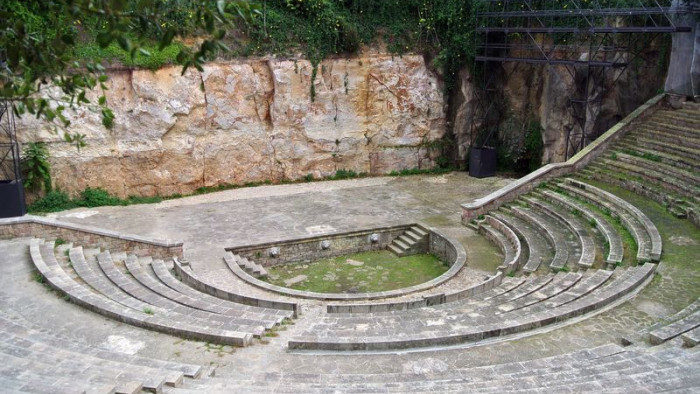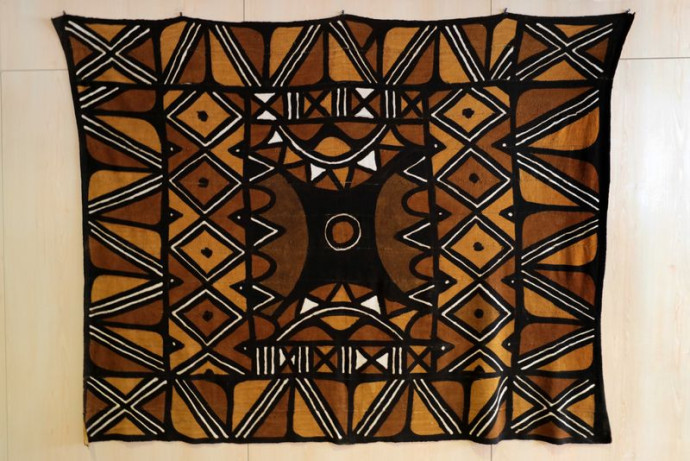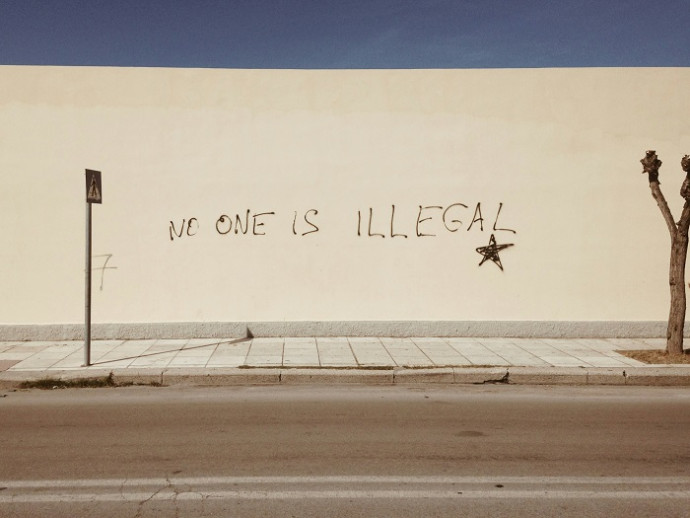ITINERARY. Decolonial perspective
One of the most fruitful thematic divisions of recent thought involves questioning the inherited structures of power, knowledge, and culture from various forms of colonialism—hierarchies imposed in multiple spheres. This perspective has been established for years, but the task at hand in this regard is enormous, making it always a good opportunity to continue revisiting the persistence of this inherited framework in contemporary society, both on the streets and in institutions. Thus, the present Biennial gathers various voices with the aim of offering viewpoints, raising questions, breaking silences, and even provoking laughter.
When we talk about specific voices, that of Nigerian professor Oyèrónkẹ Oyěwùmí will be prominent, as she participates in three activities in the program, being a fundamental reference for African feminisms and an inspiration for decolonial feminism. The seminar Africa and the African diaspora confront the worlds of gender will delve into the theses presented in The Invention of Women, likely her most important work, and requires prior registration. Similar postulates will likely appear in Feminisms, an open dialogue with the general public that Oyěwùmí will hold with Chiara Bottici, and in the morning session with secondary school students titled Africa: decolonizing knowledge, which aims to help young people become aware of notions like Eurocentrism.
American Jasbir Puar is another relevant figure who, although she comes from the field of queer theories, always incorporates a critical review of imperialism, particularly that exercised by the United States. Her participation in Power and space: violence, queer, and disability is expected to be substantial.
The session on European models for the reception and social inclusion of immigrants will not shy away from one of the hottest topics in Europe and almost everywhere else today, but it will do so without accepting the narrative of xenophobic positions and organizations. Furthermore, the participation of Jan Willem Duyvendak, director of the Netherlands Institute of Advance Study, and sociologist Christophe Bertossi will interpret data and experiences regarding different types of inclusion and social cohesion policies related to immigration.
Every process of linguistic minoritization confronts more or less aggressive, more or less explicit forms of cultural colonialism, and often its political articulation. In the round table Reality and politics of languages, we will have the perspectives and expertise of Quebecois political scientist Jean-Rémi Carbonneau, an expert on the situation of Catalan and Sorbian, linguist Mònica Barrieras, a great connoisseur of multilingualism in educational and healthcare settings, and linguist and activist Yásnaya Elena Aguilar Gil, who works to revitalize indigenous languages in Mexico.
To complement these considerations with more relaxed, though no less serious, formulations, some shows with a comedic tone explicitly incorporate related themes. This is the case with the monologues of Yunez Chaib (activity recommended for ages 18 and up) and Asaari Bibang (Humor negra) (activity recommended for ages 14 and up), as well as the live podcast on humor as a tool against hate speech by Ana Polo, Oye Sherman, and Rocío Quillahuaman, titled Humour as a weapon against hate.
If that weren't enough, the program also includes unique proposals in terms of format, such as Fitting in. Collective memories of Asian diasporas, a blend of installation, workshop, play, and collective creation based on concepts like diaspora, loss, identity, and memory. Or the upcoming event, Ancestral invocations. Scenic proposal for the recovery of "Arxius Negres", where researcher Tania Safura Adam and actress and director Adeline Flaun create a visual and sound collage based on stories rescued from African and Afro-descendant individuals on the peninsula.
And at +Biennial…
The European Institute of the Mediterranean proposes at Casa Elizalde the colloquium "The Mediterranean: What type of myth do we want?" In the session, thinkers and creators from various shores—Manel Forcano from Catalonia, Hélé Béji from Tunisia, Hani Hassan from Lebanon, and Nourhan Sondok from Syria—will discuss whether a renewed Mediterranean imaginary in the service of humanistic values and with an open and plural vocation is possible.





